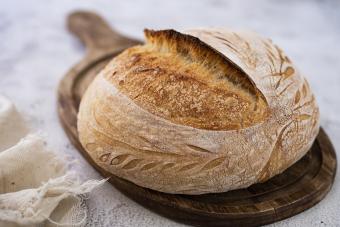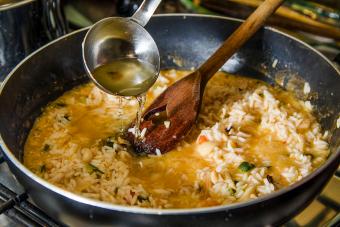
Used in a variety of Caribbean dishes that are popular in the United States and in Haiti, Haitian spices are a must for any cook trying to emulate this cuisine. These unique spices are also important for medicinal purposes and preserving meats.
Where to Buy Haitian Spices
Whether you're interested in the healing properties of certain spices or want to add a dash of flavor to your next meal, you can find many Haitian spices right in your local grocery store. To ensure the quality and source of what you are buying, however, try purchasing from these sites:
- The Spice House: The Spice House carries spices from all over the world, including Haiti. They also have a special section of spices used in Caribbean cooking.
- The Chili Guy: The Chili Guy carries many of the peppers grown in Haiti, but also carries the hard to find Scotch Bonnet pepper.
- SpiceJungle: The Savory Spice Shop carries spices from all over the world, including Haiti, which also includes Annatto seeds.
- Fiesta Spices: Fiesta Spices sells a variety of spices found in Haiti, including whole comino seeds.
Haitian Spices Used in Cooking
There are many spices that the Haitians use in cooking. Many of the spices impart a unique flavor to the foods they are added to. From Jamaican jerk recipes to riz cole avec pois, these varied savory and spicy herbs are sure to please any palate.
Popular Spices
Some of the most popular and familiar spices include the following:
- Allspice
- Anise
- Absinthe
- Cayenne Pepper
- Chili Pepper
- Nutmeg
- Scallion
- Ginger
- Cinnamon
- Coriander Seeds
- Sassafras
- Bay Leaves
- Marjoram Leaves
- Thyme
- Curry Powder
- Garlic
- Oregano
- Basil
- Cloves
Lesser Known Spices
Lesser known spices (that may be difficult to find in the United States) that are used for cooking include the following:
- Scotch Bonnet
- Annatto
- Comino
Marinades and Rubs
Haitian spices used for cooking are often used in combination with other ingredients to produce great tasting marinades and rubs for meat. Mix the herbs together with other ingredients such as:
- Black Pepper
- Brown Sugar
- Salt
- Garlic Powder
- Ground Cloves
Herbs as Preservatives
It is important to note that certain herbs have properties that can help to preserve meat before it is cooked. This would be helpful in countries like Haiti where the weather is always warm.
- Peppers contain capsaicin, an antimicrobial
- Ginger contains gingerol, an antimicrobial
- Cinnamon contains eugenol, an antimicrobial and preservative
- Garlic contains allicin and eugenol, both of which are antimicrobial
- Cloves contain eugenol
- Basil contains eugenol
Medicinal Spices
Haitian spices are grown for medicinal purposes as well. Many individuals who reside in Haiti treat themselves for minor ailments. There is only approximately one doctor for every 4,000 people in Haiti. Those who live there and treat people with herbs and Haitian spices are known as leaf healers. The following are just a few of the plants grown for medicinal purposes:
- Aloe Vera: Use the leaves of the plant to treat burns and sunburn.
- Catnip or catmint: Make a tea from the leaves of the plant, which has several uses including treating arthritis, digestive upsets and colic.
- Cinnamon: Use the ground up bark to treat diarrhea and vomiting.
- Eucalyptus: Make an extract from the leaves to treat coughs, the flu and joint pain.
- Peppermint, spearmint, lemonmint and horsemint: Healers use these herbs to calm a queasy stomach and to aid in digestion.
- Quassia or bitterroot: Use the bark of this tree to create a tonic that has several health properties, being an anti-fungal and anti-bacterial agent.
- Red sage: Use this herb to thin the blood and also increase menstrual flow.
- Sarsaparilla: Use the tea made from the sarsaparilla root to treat several skin ailments and arthritis.
- Senna: Make a tea of the plant and to use as a laxative.
- Thyme: Use this Haitian spice is in a tea to treat skin disorders or as a diuretic.
- Verbena: Use this herb as a painkiller during child birth.
Disruption in Growth
Unfortunately, many herbs and spices that can be grown in Haiti have not been produced in a sufficient amount to be exported to other countries. Natural events have occurred that have devastated the agricultural areas of Haiti, which have not sufficiently recovered to begin production again.
Tropical Storms
Haiti is frequently the target of many tropical storms making landfall. Memorable storms have hit Haiti in 2004, 2005 and 2008, as well as the more recent Tropical Storm Isaac. Each of these storms has impacted the spice production. Flooding that occurs during the storms may damage the spice crops output.
Earthquake
The earthquake that shook Haiti in 2010 has also had an impact on the spice trade. Rebuilding is still continuing, which means fewer resources are available to cultivate and grow the spice crop. The spices are grown in smaller amounts on individual farms and primarily used by the locals.
Enjoy the Spice of Life
Haitian spices can lend a world of flavor to the food you eat, as well as a secondary resource for your medicine cabinet. While the spices direct from Haiti are in high demand, they are available for use in limited quantities. Try using some of these exotic and beneficial spices in your home and bring the spice of Haiti to your life.







